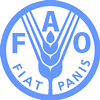 |
|||||||||
|
|||||||||||||||||||
|
|
Extreme Cold Hits Farmers in Afghanistan Extreme cold has devastated the Afghan livestock sector, killing over 300 000 animals since late December and seriously affecting livelihoods. High prices for fuel, vegetable oil and cereals are compounding the vulnerability of poor households, reducing their access to food.
The harshest winter weather conditions in nearly 30 years have killed over 800 people, and many others, notably shepherds and their families, have suffered severe frostbite, requiring disabling amputation, according to a recent FAO report. Food and medical supplies have been running short as roads in remote areas remain blocked by heavy snowfall. Winter crops in the hardest-hit areas have been severely damaged, in particular vegetables, which are the main source of nutrition during the lean winter months. Worrying situation “The situation is very worrying,” says Samuel Kugbei, acting FAO Representative in Afghanistan. “Livestock are a lifeline for many of the affected households, whose food situation is already precarious. Without assistance, they risk even greater food insecurity.” In collaboration with the Ministry of Agriculture, Irrigation and Livestock of Afghanistan, FAO has distributed 20 tonnes of feed in Herat, one of the hardest-hit provinces. FAO is also providing 60 tonnes of feed concentrate to the worst-affected farmers in Bamyan Province. The UN agency is seeking over $2 million to provide an additional 1 500 tonnes of feed, as well as vaccines, multi-vitamins and anti-parasitic treatment for the livestock of 50 000 vulnerable farming families. So far, ECHO, the European Commission’s humanitarian aid department, has pledged over $500 000 to provide 500 tonnes of feed concentrate. Import needs likely to be unmet High world wheat prices, and the low purchasing power of the bulk of the population, mean that the country’s commercial import requirement this year of 550 000 tonnes of wheat, the main staple, is unlikely to be met. The food aid requirement had been estimated at 100 000 tonnes of wheat, but this figure may need to be revised upward. Early prospects for the 2008 wheat crop, currently in its dormancy period, are favourable, however. According to FAO, the heavy snowfall in January helped make up for below-normal precipitation earlier in the season. Damage to wheat in severely affected areas is difficult to assess at this stage, FAO says, as most of the crops are still covered by snow. Flooding expected With temperatures beginning to rise, snow is melting rapidly in the mountains and flooding of major rivers is expected in the spring. FAO is currently working with the national disaster management authorities and its UN and humanitarian partners on a flood preparedness and rapid response plan.
|
||||||||||||||||||

|
|
||||||||||||||||||
| home | agri-services | pedigree
pen | news | dairy | beef | machinery property | organisations | site map |
|||||||||||||||||||

